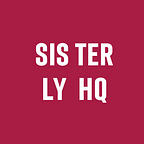Shame: A Deep-Rooted Tool Used To Silence Women Into Oblivion.
Written by OgoOluwa Ajiboso
“Shame is a warm feeling that washes over us, making us feel small, flawed, and never good enough.” — Brene Brown
I’m very vocal. Whenever I engage in a debate, I do so with vigor and conviction. This was always evident During the days I had the luxury of time to engage in arguments with severely misogynistic Nigerian men about the importance and validity of feminism. The conviction in my voice always spoke Volumes on my strong belief in the promotion of equal rights, duties and benefits of women, a concept that existing Nigerian culture seeks to suppress
Whenever we could not reach a middle ground, or they ran out of arguments to make, they would conveniently opt for the overused and condescending statements such as: ‘’When you’re forty and unmarried, you’ll see what feminism can do for you,’ or ‘You best not say these things outside, otherwise nobody will marry you,’ and other shame-laden statements.
Similarly, whenever I found the courage to admit that I did not enjoy cooking or did not know how to prepare a certain meal, I was met with equally belittling statements from the Yoruba Aunties. They ranged from “Ah! And you are saying it. Don’t you realise you’re a woman?” to “Do you want a house girl to steal your husband?” or simply “You should cover your eyes in shame.” stated in Yoruba with a face that could kill you with a single glance.
Women are believed to be born with shock (and apparently abuse) absorbers. They are expected to be gentle, endure all forms of distress, and stay away from trouble by never complaining.
Even if they wish to express some form of discomfort or dissatisfaction, they are told to do it quietly to maintain peace. For some reason, it is believed women should inherently tilt towards silence and toxic tolerance, and if not, they are flawed.
For women who don’t turn the volume down, they are called angry, bitter, and aggressive. They are called ‘too much’ for demanding that the version of life they experience doesn’t always have to be shallow, limited, and derogatory.
Women are often praised for ‘keeping their home’ by remaining in an obviously abusive marriage and with a cheating partner. They are told to swallow the lump of betrayal burning their throat to avoid setting the world on fire.
They carry a burden that is not theirs to bear with inner thoughts such as “What will people say?” and “How will they look at me?” weighing heavy on their shoulders.
We live in a society where a woman is scrutinised and at fault. She is not only shamed for defying stereotypes but also for making human errors. She is forced to remember her every mistake for the rest of her life in an attempt to prevent other women from following in her steps.
Teenage girls who get pregnant are the only ones who get shamed and ostracised by society as though they were the only ones involved in the baby-making process.
When a woman in her position as a mother or leader fails or makes a mistake, society is quick to use the “gender card” as the reason behind her shortcoming. They proclaim, “This is why we don’t believe women should be in positions of power.” ‘Women are incapable of making judgments.’ If a woman dares to be seen or heard, she is expected to be perfect.
Any society that is silencing its women has no future. — Hafsat Abiola -
For centuries, this culture of shame has driven women to the back seat or without a seat in major sectors of our society, leading to poor representation and little consideration in the creation of policies that control our world. It has also led to the mistaken belief that it is women’s obligation to endure the brunt of injustice and abuse directed at them.
Women have been left struggling with the inner voice that tells them to shrink a little to accommodate the energetic excesses of this world. We need the voices of women if we are to make any progress as a society and a country. Women must be held accountable while simultaneously receiving fair opportunities to make mistakes and learn from them.
The marginalization of women has led to a system suited to only one half of the population. In an institution that is extremely skewed, no progress can be made.
In conclusion, popular author, Sheryl Sandberg once said, “We need women at all levels, including the top, to change the dynamic, reshape the conversation, to make sure women’s voices are heard and heeded, not overlooked and ignored.” and this cannot be achieved if our society doesn’t rise above gaining pleasure from the silence of women.
OgoOluwa Ajiboso is a writer who utilizes strong vocabulary, grammar, and imagination to communicate with utmost clarity. With the audacity of language, she tells stories that have the capacity to evoke social change. She writes about Mental Health, Women, Healthcare and everything in between.
Edited by Blessing Temitope Oguntuase
Blessing Temitope Oguntuase is a law graduate who obtained her Bachelor of Laws (LLB) and Master of Laws in International Air, Space, and Telecommunications Law from the University of Pretoria. Temitope enjoys writing and engaging in research. She is passionate about exploring the intersection between disruptive technologies and the Law. Connect with Temitope on LinkedIn and Instagram.
Published by Akinsipe Temitope
Temitope is a young storyteller who thinks all stories are worth telling. She loves to inspire people to do what they love and follow their passions, tell their stories, and live in the present moment. Connect with Temitope on Instagram, and Twitter.
